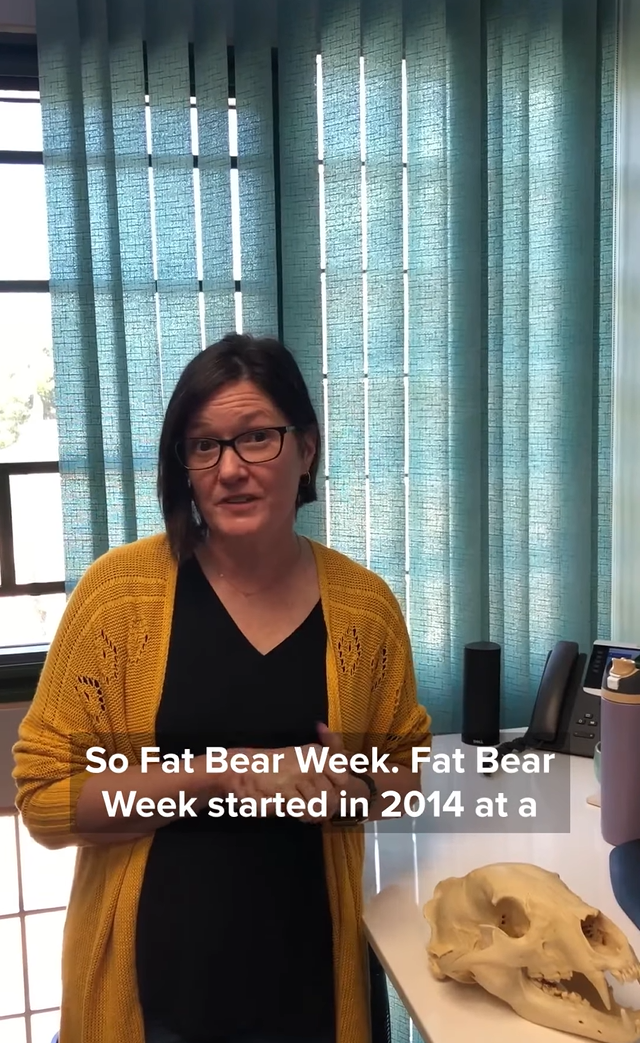Discover how celebrating nature’s heftiest bears offers insight into conservation, eco-tourism, and public policy.
As 2024’s Fat Bear Week wraps up, we reflect on more than just the excitement of the competition. This year, 128 “Grazer,” a fierce and nurturing mother bear, claimed her second consecutive victory, thrilling fans around the world. But beyond the spectacle lies a powerful message about the value of nature and conservation—something central to our work at the Department of Agricultural and Resource Economics (AREC).

View this post on Instagram
Our very own bear and wildlife ecology expert, @enstumd's Jennifer Mullinax tells us why the bear craze is worth the attention and provides an important educational opportunity for all.
Fat Bear Week has become a global phenomenon, engaging millions in a lighthearted contest to crown the fattest bear of Alaska’s Katmai National Park. However, the event also highlights the economics of nature, a key area of study at AREC. By focusing on the value people place on natural resources and public lands, events like Fat Bear Week bring issues of conservation into public awareness. These ecosystems, wildlife, and the spaces they inhabit hold immense value for both visitors and society as a whole.
The National Park Service and Fat Bear Week exemplify how natural spaces generate "use value"—the direct benefits visitors gain from experiences like hiking or wildlife watching. These benefits underscore why conservation efforts are so important. Yet, the value of places like Katmai National Park extends beyond physical visits. Many people who never visit still feel a responsibility to protect it for future generations, known as "bequest value." Similarly, "existence value" refers to the satisfaction people get simply from knowing these wild places exist. All these values play a crucial role in shaping how we manage and protect our natural resources.
At AREC, we study these principles to help solve broader challenges like climate change, biodiversity loss, and public land management. National parks like Katmai provide models for understanding the diverse ways in which nature is valued and how these values can guide public policy.
If Fat Bear Week has sparked your interest in how eco-tourism, conservation, and public engagement intersect, consider exploring these topics in one of our courses this spring. These are just a few ways we explore solutions to some of the most pressing environmental challenges:
- AREC210: The Food Chain: What Happens As Your Food Goes From Farm to Table
Understand how global food systems are organized and explore solutions to environmental challenges similar to those seen in Katmai. - AREC240: Introduction to Economics and the Environment
Explore the intersection of environmental and economic issues, much like the balance of eco-tourism and conservation seen in Fat Bear Week. - AREC365: World Hunger, Population, and Food Supplies
Study how food distribution and environmental limitations impact global food security, paralleling issues of food scarcity seen in wildlife ecosystems. - AREC399P: Special Problems; Charting a Sustainable Future: Integrating Economics and Policy for Climate Action
Dive into how economics and policy can drive climate action, which is essential for preserving habitats like Katmai’s for future generations. - AREC433: Food and Agricultural Policy
Learn how policy decisions affect natural ecosystems and support conservation efforts through well-crafted agricultural and environmental policies.
These courses offer pathways to careers in wildlife conservation policy, eco-tourism management, environmental economics, or public advocacy—aligning with the broader lessons of Fat Bear Week. If you’re passionate about protecting nature and understanding its value, these classes are a great step toward a meaningful career.
